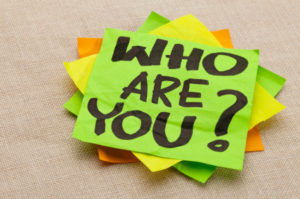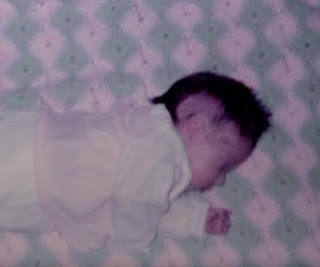In the spring of 2000, I was about to graduate from college at New England Conservatory. After becoming a Christian just a year earlier, I became involved with a Christian group on our campus. I was seriously considering applying to do an internship with the larger national organization.
Until I looked at the application.
As part of the application, the applicant was asked to identify his or her sexual orientation. I remember there being at least 2 choices, if not more:
– Heterosexual
– Homosexual
I remember sitting there, just staring at the application. If I applied, which one would I choose? I was only 2 months out of what would be my last lesbian relationship. I certainly didn’t feel heterosexual. I knew I didn’t want to be homosexual, but that’s how most of the world would describe me.
I put down the paper and walked away.*

I entered into my 1st lesbian relationship at age 15 in 1990. For reference, that’s 7 years before Ellen DeGeneres came out. The small NH town in which I explored my sexuality was not a friendly or safe one. I was horribly bullied, routinely threatened and called derogatory names.
I fought hard to become comfortable with my sexuality, which I believed was as fixed and innate as my heterosexual peers.
Today, 18 1/2 years into my walk with Jesus, my perspective has changed a bit. The only thing that I know for sure is innate in me is my propensity to sin and to wander from God’s best for me. One of the only fixed things about me is that longing in my heart to know God and be known by Him, as well as the need to connect deeply with other humans.
People ask me how I identify myself, in terms of my sexuality. I do not identify as gay (or as straight, for that matter). I still experience same-sex attraction. I sometimes experience opposite-sex attraction.
I mostly just identify as Brenna 🙂
The reason I believe the “gay Christian” label, while permissible, is not beneficial (2 Corinthians 10:23) is because words matter. The labels we use and the words we choose to describe ourselves can be a container for power – in one direction or another.
More than ever before in my life and my ministry work, I have recently seen how careless words or even well-thought-out labels can become strongholds. “Speculations” (2 Corinthians 10:4-5) that make sense to our line of reasoning can actually end up enslaving us to faulty logic. While I can understand the reasons some believers have in using the gay Christian label, I don’t believe it to be wise or necessary.
We live in a society that loves labels. Why? Because we all want somewhere to belong. As believers in and followers of Jesus Christ, we belong to the body of Christ. We are adopted children of the Most High God. The Creator of the Universe called us by name and said, “You are Mine.” This is where our identity must rest.
What are your thoughts on the gay Christian label?
– Another helpful post on this topic
*I am not at all faulting the campus ministry for asking the question about sexuality. It’s an important question. I’m using this example to refer to my state of mind and my own struggles with identity.


